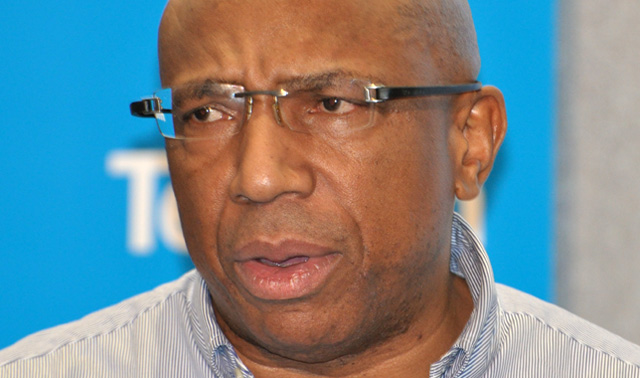 Telkom and Cell C both face significant upheaval in the short term, much more so than their rivals MTN and Vodacom. How the two companies adapt to the changing market will have a dramatic impact on South Africa’s telecommunications sector and, ultimately, on the services that consumers receive and the prices they pay.
Telkom and Cell C both face significant upheaval in the short term, much more so than their rivals MTN and Vodacom. How the two companies adapt to the changing market will have a dramatic impact on South Africa’s telecommunications sector and, ultimately, on the services that consumers receive and the prices they pay.
Let’s start with Telkom. South Africa’s incumbent fixed-line operator this week announced its biggest restructuring in years. It’s trying to adapt to a market where it no longer enjoys a monopoly and where big rivals Vodacom and MTN, grown rich from mobile, are eyeing its traditional market of fixed lines. It has a real fight on its hands in its core business and it’s going to need to box very cleverly indeed just to stand its ground.
Telkom needs to be fighting fit. That means shedding its legacy and becoming an efficient operator, which it simply isn’t today.
So the management team, led by CEO Sipho Maseko and supported by a powerful board of directors — Telkom’s strongest ever under chairman Jabu Mabuzu — has unveiled plans to outsource operations (and staff) it deems noncore, including its call centres, in areas where it believes external service providers will do a better job at a lower cost.
The restructuring doesn’t (yet) affect Telkom’s field services operations — the maintenance technicians on the ground — but it seems little else is being left untouched in the shake-up.
Apart from outsourcing its call centres — long an area of pain for the company and its customers — Telkom is rationalising its property portfolio, including moving out of its vast downtown Pretoria head office. It’s selling warehouses, outsourcing supply chain management, closing down or outsourcing legacy IT systems and outsourcing printing, including its telephone directory business. And it’s closing some of its retail stores, retrenching some staff in the process.
Of course, Telkom must be careful not to trim muscle with the fat. Already, concerns were raised at its interim results announcement in November about a sharp decline in its capital expenditure in the six months to September 2014. But there’s no doubt that radical surgery is long overdue.
That such big changes, including job losses, are happening on government’s watch — the state still holds a direct 39,8% stake in the company — is probably testament to the strong board, which has clearly managed relations with the politicians very carefully.
Telkom is some way down the road in implementing the changes it needs to. At Cell C, unfortunately, real bloodletting may still be ahead. Indeed, the mobile operator’s position in South Africa’s mobile sector is looking increasingly tenuous.
Licensed 15 years ago as South Africa’s third mobile operator, Cell C has struggled for relevance. It’s made good progress in gaining market share in recent years, mainly by slashing prices.
But that growth may have come at a big financial cost. The operator is burdened with debt, widely believed to be more than R10bn. One insider puts the number as high as R14bn.

Cell C’s shareholders, led by Dubai-based Oger Telecom, have shown remarkable patience, pouring money into the operation in the hope that it has what it takes to build a meaningful and, more importantly, profitable rival to MTN and Vodacom.
However, that patience must now be wearing thin.
A report by news wire Bloomberg this week quotes unnamed sources as saying that Cell C is “exploring options” that include a sale to South African rivals.
It’s difficult to see a local transaction happening, though. It’s understood Telkom isn’t interested in pursuing an acquisition, while any attempt by Vodacom or MTN to do the same would almost certainly be blocked by regulators. Also, who would want to take on Cell C’s debt?
Still, Cell C has reportedly engaged Goldman Sachs to explore options, so perhaps an international suitor will come knocking. France’s Orange and India’s Bharti Airtel are two companies whose names keep getting mentioned in reference to Cell C.
Could the consolidation now happening in the telecoms industry force Oger’s hand? A resurgent Telkom, working with MTN, together with a merged Vodacom and Neotel, must be a scary prospect indeed for Cell C’s shareholders.
- Duncan McLeod is editor of TechCentral. Find him on Twitter
- This column is also published in the Sunday Times

